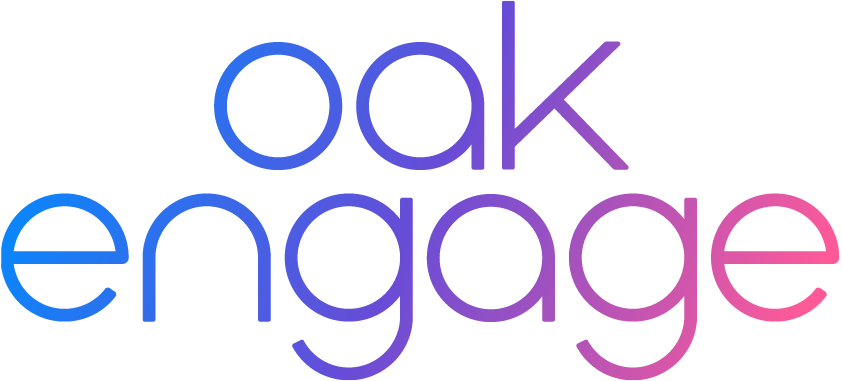When circumstances change and you need to adapt quickly to a situation, it’s important that you learn how to communicate with your employees. Many people interpret change in different ways. Some love the idea of a fresh start and getting stuck into something new, whereas even the thought of change can leave others breaking out in a cold sweat. But, whether we like it or not, in most cases change is inevitable; especially in the workplace.
After the turbulent year of 2020, we’ve probably gone through more changes in the workplace than ever before. From working remotely at home to the furlough scheme, we’ve seen a lot of changes happen in the world of work this year.
Although these changes have been down to the global pandemic, it doesn’t mean that other changes in the workplace have gone away. Change can be anything; it can be something as small as a new addition to the team to something bigger like a change in a company’s management structure. It’s important to remember that whatever the change is, it will affect your employees in one way or another. Therefore during the process of change, it’s imperative that you learn how to communicate change with your employees.
If your workplace is currently undergoing any type of change, it’s important you communicate this with your employees clearly and effectively. Recently a study conducted by Gartner found that employees suffering from change-related stress perform 5% worse than the average employee. You can’t afford to have your employees unhappy and stressed at any time let alone when your company is going through a change.
Here are 5 ways to help you learn how to communicate change with your employees in the right way.
Honesty is the Best Policy
Beating around the bush and not being honest with your employees will only make the situation worse. After all, they deserve respect and need to be communicated with at all times. Being open and honest at the start of the change process will give your employees time to digest information and discuss anything they need clarifying through management. It will also help squash any gossiping and rumours spreading within the company. An article by Klemchuk LLP stresses the importance of honesty in the workplace, stating that the more transparent the work environment, the happier employees are.
Remain Positive
It doesn’t take a genius to work out that if you’re negative about the changes, it will more than likely rub off on your employees. A negative work environment can lead to poor company morale and diminished performance in your employees.
Weigh up the pros and cons of the changes and let your employees know if there are any benefits in it for them. Letting them know if something is in it for them will make them embrace the changes and not leave them feeling as reluctant. On the flip side, if there are no benefits, explain this but try not to dwell on it too much as it’ll bring their spirits right down.
Keep Them Updated

Being open and honest by explaining the changes to your employees is the first step in learning how to communicate change, but make sure you keep them in the loop at all times. If you receive any updates or circumstances change, your people must be notified of this.
If you’re from a larger organisation, an employee engagement app is a great platform to keep your people up to date. With Oak, there are plenty of ways to keep your team connected. Oak enables you to send out important information in an instant. From the main timeline to mandatory reads, whatever information you need to get to your employees, there’ll always be a suitable place.
For example, if you have minor updates you need to communicate, the main timeline is probably the best place to go. Here you can send a message that can be seen by everyone in your company and they can interact with the message through likes and comments. But, if you have something more serious that needs to be viewed immediately, a mandatory read will be best for this. Employees will need to confirm that they’ve read the information and they understand, you’ll also be able to track who’s read and who hasn’t.
Keeping your people informed at all points will clear up any speculation, put a stop to any gossiping and build trust between you and your employees. You don’t want to leave your employees in the dark at an uncertain time. Transparency is key when identifying how to communicate change with your employees.
All Ears
As for keeping your employees up to date at all times, the same goes for being open and listening to them. One of the golden rules when learning how to communicate change to your employees is to anticipate and appreciate feedback. Like with any changes in the workplace, they’re more than likely going to have a lot of questions, so it’s crucial that you answer these as best you can and listen to any feedback they give you.
An article by Inc states that employees who feel listened to are 4.6x more likely to feel empowered to do their best work. Not listening to your employees, especially during a change in the workplace could have negative consequences for your company.
To get a perspective of how your employees are feeling about the changes, the first thing to do would be to schedule in meetings with members of your team. In these meetings, ask them what they think about the changes, how they are feeling at work and how they see their future at the company.
Obviously, we understand that 1:1 meetings can be quite lengthy, and if you have a big team it might be difficult to schedule in a meeting with everyone. So if you need a quicker way of gaining feedback from your team, we recommend sending out a Pulse Survey. A pulse survey is a short survey that is sent to employees regularly to provide feedback on topics such as; employee satisfaction, employee wellbeing and work environment.
Distribute a pulse survey to your employees asking specific questions about the changes going on. Here you’ll be able to gauge who is more comfortable about the changes and approach the less comfortable employees and ask them about their worries and concerns. The good thing about pulse surveys is that they can be completed in minutes- so no excuses from your team saying they don’t have the time. Surveys and other feedback tools are a great way to gather information and proceed with actionable results to effectively communicate change with your employees.
You're All in This Together

Whether you thrive on embracing change or you’re more a creature of habit, change is usually something that can’t be avoided. If your company is currently going through a type of change, big or small, ensure you follow these steps on how to communicate change with your employees and to avoid the possibility of losing great employees in the process.


